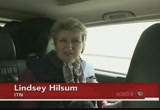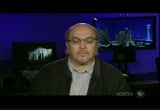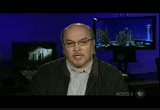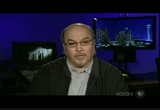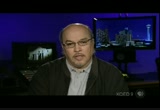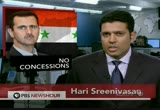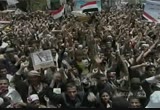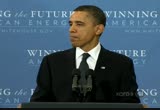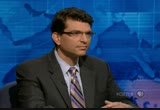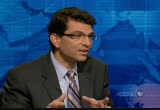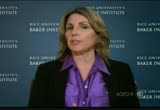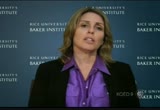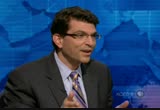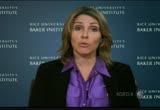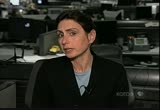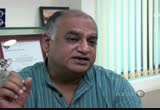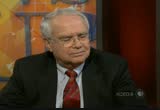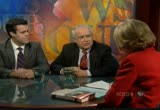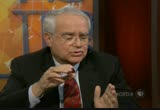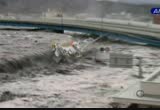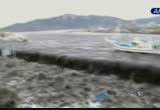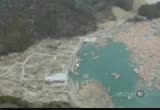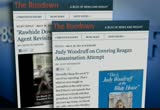tv PBS News Hour PBS March 30, 2011 6:00pm-7:00pm PDT
6:00 pm
captioning sponsored by macneil/lehrer productions >> lehrer: government troops pummeled libyan rebels with rocket and artillery fire and re-captured a key oil town. good evening, i'm jim lehrer. >> ifill: and i'm gwen ifill. on the "newshour" tonight, we have the latest on the eastward retreat and on the growing debate over whether the coalition should now arm the opposition. >> lehrer: then, we look at trade-offs on energy as president obama presented ways to reduce dependence on foreign oil. >> ifill: from india, fred de sam lazaro reports on troubles in the business of providing small loans to the poor. >> people in villages like this say agents from various
6:01 pm
microfinance companies would come in and try to sell them on loans without regard to whether they had other loans outstanding. there were no questions asked about what the loans were for. ( gunshots ) >> lehrer: and judy woodruff has a conversation about this date 30 years ago, when president ronald reagan was shot outside a washington hotel. that's all ahead on tonight's "newshour." major funding for the pbs newshour has been provided by: in 1968, as whaling continued worldwide, the first recordings of humpback songs were released. ( whale singing ) public reaction led to international bans. whale populations began to recover. at pacific life, the whale symbolizes what is possible if people stop and think about the future. help protect your future with pacific life-- the power to help you succeed.
6:02 pm
6:03 pm
this program was made possible by the corporation for public broadcasting. and by contributions to your pbs station from viewers like you. thank you. >> lehrer: a key official in moammar qaddafi's government defected today. the foreign minister, moussa koussa, sought refuge in london according to britain's foreign office. on the ground, the momentum shifted again in qaddafi's favor, as government troops reversed the gains rebels made just two days ago. opposition forces retreated east giving up the towns along the way and there were reports of some heading back to the rebel stronghold of benghazi. lindsey hilsum of "independent televison news" reports from the frontlines. >> reporter: the rebels set fire to one of colonel qaddafi's old tanks before fleeing ras lanuf. it must have been satisfying to
6:04 pm
watch it go up in flames, but it doesn't alter the balance of forces in this war. in brega, 60 miles east, they were burning his green flag, but the news from the village in >> ( translated ): when we were in ageila, we were suddenly bombed from three directions-- north, south and west. we now demand that the u.n., if they support the libyan people, supply us with weapons, and nato should carry out more airstrikes so we can go forward. >> reporter: the fighters seem to get younger by the day. ahmed saleh said he was 17 he and his friends had just fled the frontline. you have a knife. >> yes. >> reporter: show us your knife. how can you fight a tank with a knife? "allah would help," he said.
6:05 pm
does your mother know you're here? what does she say? he said his mother was happy he was with the fighters. by mid afternoon people were streaming out of ajdabia 60 miles further east, just as they did three weeks ago when colonel qaddafi's troops first attacked. hundreds of families and fighters are fleeing ajdabia, heading for benghazi and we're going, too. in the last two days, the whole momentum of this war has reversed. colonel qaddafi's forces are coming back down the road towards us. it seems that there's nothing to stop then as the rebels are too weak. they are however still full of enthusiasm and occasionally, eccentricity. grateful to the french and other members of the coalition and increasingly desperate.
6:06 pm
>> lehrer: in washington, secretary of state hillary clinton said late today the administration has not decided yet whether to arm the rebels. that issue has been under intense discussion. we join that debate with emira woods, co-director of the foreign policy in focus program at the institute for policy studies, a think tank in washington. and mansour el-kikhia, chair of the department of political science at the university of texas at san antonio. he's a long-time libyan human rights activist. professor el-kikhia, what do you think? should the rebels be armed? >> well, i'm an advocate, of course. we've thought about this for a long time. in fact, i was talking to the head of the security forces in benghazi, the... any way, i talked to him and he gave me a
6:07 pm
list of things he needed and i supplied it to the american administration. and they're simple things like body armor, like hats, your hats and boots and from protection and they've been studying it for three weeks. now you can't win against qaddafi'sor mortar, he has tanks and rocket launchers. very, very tough indeed. and the american foreign policy is funny in this sense. they say qaddafi is legitimate on the one hand and then they don't want to do something about helping remove him. this is a decision america has to make. plus libyans, libyans are saying we need your help, we want you to help us remove this ogre and it's up to you now. how long it takes, i don't know. >> lehrer: how do you feel about it? >> well, the world has watched qaddafi and his marinery and town a shame to watch the continued slaughter of innocent
6:08 pm
civilians but i think arming them could be a disaster in the making. you have a standing resolution, resolution 1970 called for an arms embargo of libya, called for an explicit effort to not have a region that's already awash with arms. and let's remember, the arms in libya, much of it, was supplied by american arms dealers. but to now arm the other side could lead civilians in even greater harm's way. so we are all very much in solidarity with the people of libya, especially after we've seen this spring arise in tunisia, in egypt. but arming the opposition, it's moved them from being pro-democracy forces to being rebels, to now being fighters to even being child soldiers. and i think we have to be concerned. concerned about the flood of weapons and what that means to civilian. concerned about private military contractors, the black waters of this world and what that could bring to an already-tense situation but also concerns about this fragile coalition
6:09 pm
that's been cobbled together. let's remember. the african union has been the loudest voice basically calling out opposition to the air strikes and in opposition to a very militarized solution to this crisis. underscoring the need for a political resolution. it may not be the hammer of the military that resolve this is one but a combination of particularly political and also economic pressure on the regime. >> lehrer: professor, how do you respond to that? >> well, i'm sorry, i tend to disagree. it was once said that pacifists tend to think wolfes are vegetarian. they're not. these wol wolfes will not deter colonel qaddafi from destroying the city he's going into. secondly, the arms embargo, qaddafi, as you can see, he has enough arms to blow up the whole country at will. it's the people who need the arms most that don't have it. we're also talking about
6:10 pm
international law. international law it can be interpreted in many, many, many, many ways. and these people who are fighting mr. qaddafi are, in fact, civilians. they're not... we have the professional soldiers and professional soldiers don't have the weapons that they can use against qaddafi therefore they have to shuffle back all the tanks, the bad tanks by the coalition to try to fix them and put them up to so they can meet qaddafi. but they're no match for the huge amount of emergency hardware that this regime has and the regime will use it to the utmost capacity the idea that he's up for some compromise you don't know qaddafi. we know him, we've lived with him for 40 years, we know what he's capable of and much of the world has seen what he capable of in the last four weeks. >> lehrer: you heard that, ms. woods? there's no compromising with qaddafi. he has to be destroyed military.
6:11 pm
you heard what the professor said. >> well, clearly, as a lie byrne we know well the history with qaddafi. it goes back to support of taylor and many of us thought that there would not be a resolution to the crisis when taylor had his grip on the lie byrne people. i think in the case of libya, now, what we see is an incredible people's movement that has come to the fore. just as it dime the fore in tunisia and in egypt. but we have to understand it's also rising in other countries. it's djibouti, it's yemen, it's around the world you have now these uprisings of people and world of international community... will the international community respond by arming all sides in each of those conflicts? i don't think so. i think we need to think of other tools in our international tool kit to respond to crises like this. >> lehrer: what about the professor's specific point if the rebels... if the citizens are not armed they're going to be destroyed by qaddafi's army because they're outmanned and they're outarmed. >> i think clearly we have to
6:12 pm
use all means to protect the civilians. i think that was resolution 1973 of the u.n., to protect the civilians. but arming the civilians takes a step further that was not in resolution 1973. takes a step further from protecting to actually creating combatants in a conflict and arming them. and, again, many of these combatants are young, they are poorly trained. they are child soldiers. and in a situation like this, we want to make sure that we first do no harm. arming these opposition forces could well undermine their movement and create even more chaos for civilians on the ground. >> lehrer: what do you think about that? would it create more chaos and undermine the movement? >> i want to make something very clear. i'm not advocating arming 17-year-old children. we have three generals, these
6:13 pm
are the heads of the armed forces in libya which are professional soldiers that have, in fact, defectd from qaddafi and they are professional soldiers and they know how to use those weapons. this is what i'm advocating. i'm not advocating giving those weapons to those young kids. those young kids are moving there on pure energy and hatred for qaddafi. what i'm talking about is giving the weapons and arms and particularly anti-tank weapons to those professional soldiers who will we do have in libya. you're talking about solutions. what other solution? i'm sorry. give me a solution. you want to tell qaddafi, mr. qaddafi, stop? >> lehrer: i was going to say, let's ask ms. woods. what other means are available? >> there are other means being put forward. tighten up these financial sanctions. there's a machinery that has held qaddafi in place for 42 years. that machinery needs to be unwoven so the network of
6:14 pm
bankers we know already bankers throughout this world that have actually held qaddafi in place need to be held accountable. need to apply pressure at this critical moment. there are particularly oil dealers and multinational oil corporations that have a huge sway in what happens in libya they have had for decades in spite of qaddafi's seemingly madness, right? and they have had incredible sway. they need to be held accountable and on the right side of history we need to use all the powers and levers that we can, look at financial, economic, political pressures that can also potentially create an exit strategy for qaddafi to make sure that there is a real resolution of this conflict. >> lehrer: and stop the retreat? the forced retreat of the rebels as was just reported by lindsay hilsum on the road going back to
6:15 pm
benghazi? do you think those means that you talk about can stop them that? >> well, none of us have a crystal ball and it's difficult to say what will happen. either we arm them and there's chaos or we don't arm them and there could be a very tumultuous role ahead. clear play we need to do is continue to use all of the tools in the tool kit to support the pro-democracy forces. remember where they started. remember the values of what they bring, standing for a change in an economic that has not served their needs, standing for a change in the a political system that has repressed them for decades. this is an amazing window of opportunity in history and we need to use it well. >> lehrer: let me finally ask you, professor. in a word, do you think that will work? do you think that will stop qaddafi? >> i'm sorry. i'm sorry. those bankers are not going to stop qaddafi's army moving in the next two days and bombing benghazi again. there's an arabic saying which is really wonderful over here. if you see the lion's fangs
6:16 pm
showing, don't think the lion's smiling. i'm sorry. i'd love to believe in the goodness but i know i'm dealing with a nasty, nasty man who's bent upon destruction. >> lehrer: thank you both very much. >> a pleasure, thank you. >> ifill: still to come on the "newshour": the costs and benefits of energy independence; the business of making small loans in india and the attempted assassination of ronald reagan 30 years later. but first, with the other news of the day, here's hari sreenivasan. >> sreenivasan: the president of syria today offered no concessions to a wave of dissent against his authoritarian rule. bashar assad arrived in parliament for the first speech since protests began nearly two weeks ago. assad was widely expected to lift a decades old emergency law. instead, he blamed the turmoil on conspirators and vowed to defeat those who were behind it. >> ( translated ): i speak to you today at very exceptional times. the events and developments seem to be testing our unity, the test that keeps repeating itself
6:17 pm
every now and then because of continued conspiracies over the homeland. but our will and unity and god's will continue to succeed in confronting these conspiracies every time successfully, which adds to our immunity and strength. >> sreenivasan: after the televised speech, hundreds of protesters took to the streets in the port city of latakia shouting freedom. and there were some reports troops opened fire at one of the protests. huge crowds of protesters gathered across yemen to demand president ali abdullah saleh step down. the anti-government demonstrators packed streets in sanaa, saada and marib. opposition leaders said saleh's insistence at staying in power constitutes a grave danger to yemen. in bahrain, the shi-ite opposition demanded military forces from neighboring saudi arabia leave the kingdom immediately. the sunni king asked them for help, after majority shiites staged protests calling for more freedom. seawater near japan's fukushima dai-ichi nuclear power plant measured the highest radiation levels since the tsunami crippled the plant nearly three weeks ago. seawater samples 300 yards away
6:18 pm
from the plant contained more than 3,300 times the legal limit for radioactive iodine. a nuclear official in tokyo voiced concern, but said it doesn't pose an immediate threat to public health. >> ( translated ): the readings are now higher, so we need to be vigilant and we have to make efforts to prevent any further leakage into the sea. but these numbers are in the same order of four digits as previous readings, and as i have said before, and have confirmed with the japan atomic energy commission, the area within 20 kilometers of the fukushima dai- ichi nuclear reactor has been evacuated and there is no fishing going on there. therefore it is unlikely to affect residents in the vicinity. >> sreenivasan: also today, officials from tokyo electric power company publicly acknowledged for the first time that four of the plant's six reactors will be totally written off. the cost of decommissioning just one reactor runs upwards of $500 million.
6:19 pm
afghan president hamid karzai condemned a group of u.s. soldiers charged in the murders of three afghan civilians. it marked the first time karzai publicly addressed the case since graphic photos of the troops posing with dead afghans were published in "der spiegel" and "rolling stone magazine." karzai said the soldiers took drugs and, "they killed our youth for entertainment. they killed our elders for entertainment." the first of the five soldiers to be court-martialed pleaded guilty to murder last week. he was sentenced to 24 years in prison. fighters who support the internationally recognized leader of ivory coast seized control of the capital city today. the opposition forces staged a dramatic advance on yamoussoukro from all sides this week, before capturing it tonight. the commercial capital abidjan is likely the next battleground. president laurent gbagbo has refused to step down, despite losing to allasane outtara last fall.
6:20 pm
the food and drug administration convened a panel today to examine whether food dyes cause hyperactivity in children. the agency has long rejected any clear link. but a new report said the dyes could aggravate existing behavioral issues. the two-day meeting comes after calls by a consumer watchdog group to ban eight different dyes. the panel is more likely to recommend tighter regulations, better labeling, or further study. stocks rallied for a second straight day on wall street. the dow jones industrial average gained 71 points to close at 12,350. the nasdaq rose nearly 20 points to close above 2,776. those are some of the day's major stories. now, back to gwen. >> ifill: next, what's the right path for u.s. energy policy in the aftermath of major disruptions around the world? the president attempted to put that question back on the national agenda today. today's georgetown university speech came as energy costs,
6:21 pm
production and safety issues have increasingly dominated the headlines. at the gas pump, the average cost for a gallon of unleaded fuel is now officially $3.59, but in many places, it's already crossed the $4 mark. >> but here's the thing, we've remember, it was just three years ago that gas prices topped $4 a gallon. working folks haven't forgotten that. it hit a lot of people pretty hard. but it was also the height of political season, so you had a lot of slogans and gimmicks and outraged politicians waving three-point-plans for $2 gas, when none of it would really do anything to solve the problem.
6:22 pm
>> ifill: yet as turmoil in the middle west continues unabated-- threatening the supply chain and driving prices even higher-- the president again called for cutting petroleum imports by a third by 2025. and in the wake of safety worries arising from the japanese disaster, the president said he would continue to push for nuclear expansion, subject to stricter inspection. these energy dilemmas have sparked new debate just as the economy struggles to bounce back. among the skeptics: senate minority leader mitch mconnell, a republican. >> the problem isn't that we need to look elsewhere for our energy. the problem is that democrats don't want us to use the energy we have. it's enough to make you wonder whether anybody in the white house has driven by a gas station lately. >> ifill: it's been almost exactly one year since a west virginia coal mine accident killed 29 people and a massive oil spill sent more than 200 million gallons gushing into the gulf of mexico killing 11
6:23 pm
workers. in the wake of that accident, the obama administration banned deepwater drilling for much of the last year. but as the administration continues to search for alternatives, a new pew research center study found america ranks third among industrial nations in so-called clean energy investment. included in that description: wider use of natural gas; increased production of renewable biofuels made from switchgrass, wood chips and biomass. but much of the president's energy plan has already been scaled back, in the face of congressional opposition. joining us to sort through the choices and the limitations of energy policy are three people who follow the issue closely. jason grumet is president of the bipartisan policy center, which promotes policy solutions across party lines. amy jaffe is a senior energy advisor at the james baker institute at rice university. and elizabeth kolbert writes about energy and the environment for the "new yorker." she's the author of "field notes from a catastrophe," a book about climate change. jason grumet, tell me a little bit about what we heard today. it's stunning to remember that it's been one year since the coal accident in west virginia and within the last year we've
6:24 pm
also seen... the last month we've seen what happened in japan and within the last year what happened in the gulf. has that changed our energy policy? should it? >> clearly it has to. i think these events are shocking but in some ways they're not surprising. we've seen analogs to these over the last generation, three mile island, major oil spills in santa barbara and alaska, unrest in the middle east leading to price spikes in the '70s. i think what we've just seen is all of these events essentially happening in the last 12 months. this creates clearly a new urgency for developing new sources. it also suggests that we not just need additional plans. we're not lacking for energy plans. what we've been lacking is the ability to create goals that have real consensus, that have metrics so we can figure out whether we're making progress and have real accountability. it's keeping track of those plans over time that our democracy is not really well designed for. >> ifill: let's talk about that, amy rice, if the truth is that, as jason puts it, that we have had new plans under i don't know
6:25 pm
how many presidents in a row, has anything really changed? i'm sorry, i called you amy rice. you're at rice but you're amy jafe, my apology, sorry. >> yes. so i mean we see... sort of the same speech over and over and over again from whoever is president. president bush in his state of the union said we're going to reduce imports by 20% by 2017. but the reality is if americans would be realistic, we're in a much better position today to do something than we were under all the other presidencies. we've had this discovery of a new resource in the united states or an existing resource that we now have new technology to exploit. the president mentioned the natural gas we can produce from shale rock. so the challenge is to get the regulation correctly so that the exploitation of that resource could be environmentally safe.
6:26 pm
when we look forward on domestic production, we have a lot of potential. we could actually see u.s. production rising again now that the moratorium has been listed offshore and we have rising oil production on shore again from their shale rock play and also we have a potential to produce oil shale which we haven't... we're the saudi arabia of oil shale. and prices are very high now so that potential all becomes commercial. what i don't like when i hear people in this debate is that we're misleading the american people about how much we can do with clean energy and what time scale. we definitely need the move to clean energy, but when people talk about the future of clean energy, it would be like president kennedy talking about the space race and saying that we're going to spend $30 million to get there instead of several billion. in the end, in this country, the debate has to zero in around if we want to go to clean energy
6:27 pm
how are we going to pay for it? are we willing to have a small rise in the gasoline tax? are we willing to have some other kind of fee for environmental extern altys. we l we have to decide as a nation are we committed to this or not? >> ifill: elizabeth kolbert, with are we striking the right balance between conservation and consumption? >> well, clearly not. we have been consuming and consuming and the president made the point today that we consume, for example, 25% of the world's oil with 2% of the world's population. so i think that the president's speech today was pretty disappointing on how we were going to move on to a path of actually consume ago lot less energy and when you look at the top of your report, you looked at all of the catastrophes that have happened over the last just year relating to energy exploration and energy consumption that we haven't in that year really seriously looked at our consumption patterns is a pretty sad comment
6:28 pm
i think, on the state of our energy policy. and the state of discussion about energy in this country today. >> ifill: jason grumet, let's focus on one part of the president's talk today. he talked about reducing imports of oil by one-third by 2025. is that doable? >> well, reducing the amount of oil dwool a third of the imports is doable. it's about three million barrels a day. it requires a serious increase in fuel economy standards, is it will require further increases in domestic production and increases in biofuels but one of the things the t energy wonks struggle with is that the speech writers get the last word and describing the goal as reducing foreign oil is a very good approach to galvanize pollsters and voters... >> ifill: it's a political statement. >> it's not really the right goal and having a false goal does undermine our policy. the issue is not how much foreign oil we bring in, the issue is how much oil we use in its entirety. the vulnerability of our economy to oil depends not on the province of that oil but how much we use and how much the
6:29 pm
price fluctuates. so, again, i though get serious now we need to, as amy said, think about the time frame, we need to buy time in the near term with the technology we have with increased fuel economy, with increased production while we invent the future and that's going to take time. i think the president and the administration deserve credit for the budget austerity trying to push additional investments in energy technology. i think that's the concept that does have bipartisan appeal and hopefully these efforts will galvanize an appreciation we need to get behind this. >> we've been paying attention to the limitations and the opportunities-- at least we were in the beginning of this year-- nuclear power. the what degree does the u.s. depend on nuclear energy produced by nuclear power and how much should it? should it pay more attention to gas for instance? >> well, nuclear power has actually been a very important fuel in the united states. we have 103 nuclear plants. it's a major portion of how we produce electricity in the
6:30 pm
united states. but natural gas has a tremendous potential and as we move forward if it's going to become more costly to new nuclear plans, we're going to be extra cautious in thinking about the backup systems or the disposal systems for the spent rods that's going the raise the cost of nuclear power and one of the interesting dynamics moving forward for the market is that because we have a lot of new supplies of domestic natural gas, the prices for domestic natural gas are likely to be rather low relative to other fuels especially compared to oil and maybe even nuclear and so therefore i think natural gas left alone without intervention, without the markets, laws coming in to move us from one fuel to another... you know, nafrp ral gas is probably likely to be the winning fuel on the basis of just commercialty. >> ifill: elizabeth kolbert, one of the things the president likes to talk about in which a lot of energy west banks, and
6:31 pm
jason grumet put it, is clean energy. is there such a thing as clean energy really? >> well, that says s a really good question. you notice that in the president's speech he list sod-called clean coal which some people would say is an oxymoron and some people would say is an important tool in the arsenal of tools that we need to combat climate change. he used nuclear. once again many people would dispute whether nuclear power is something that produce wastes that remains dangerous for thousands of years really constitutes clean energy. so i think that that is a very good question and we haven't even... you can see sort of from that speech we haven't even defined what we mean by clean energy. the term is just bandied around and it means many different things to many different people. i think generally people would agree that wind and solar which have pretty low up front costs
6:32 pm
at the ends of the day... i don't mean in terms of financially but in terms of environmental costs and at the end of the day produce virtually no waste, those probably qualify as clean energy by anyone's definition. >> ifill: is the american public on board? >> well, that is the question of the hour, and i really sort of feel almost sorry for those kids at georgetown today when the president said we need you to have a vision. and i think point would be we really need the administration to have a vision and unfortunately i don't think we really saw that vision in his speech today. we need to move. and as the president also said, we need do it quickly. we need to be putting a lot of energy and money into the transition to a clean energy economy and we're not doing that. and i think today was an opportunity missed to move that agenda forward. >> ifill: elizabeth kolbert, aim ji jafe and jason grumet, thank you all three very much.
6:33 pm
>> lehrer: now, the story of banks loaning money to the poor in india. both the banks and their poor customers are in trouble. special correspondent fred de sam lazaro reports. >> reporter: some of india's poorest people have become victims of loan sharks. what's happened to these women has tarnished the widely praised reputation of micro-lenders who give small loans to help people become self sufficient. >> ( translated ): they came to us continuously for ten days and they offered loans. they said we will give you loans and you can pay them back in easy installments. it's not a hard thing. >> reporter: people in villages like this say agents from various micro finance companies would come in and try to sell them on new loans without regard to whether other loans were outstanding, there were no questions asked about what the loans were for. the goal, critics of these companies say was merely to
6:34 pm
increase volume so as to impress and attract the big investors. >> ( translated ): i borrowed money for our daily needs, for the kids' education and i kept up with the payments every week for six years, but when there is no work, it is very difficult. >> reporter: micro finance used to be the domain of non-profit organizations who carefully considered how the money would be used. it had to be for new enterprises that generated income and whether it could be repaid. the repayment rate has always been much higher than in any commercial lending-- around 98%. that's one reason micro-finance became a big business in india. in fact, over the past decade commercial companies have handed out $7 billion worth of loans. and they've attracted lots of investors. s.k.s. micro finance raised $350 million in an initial public stock offer last july. the result-- a competitive, often ruthless, marketplace.
6:35 pm
almost all of these women say they were coaxed into several loans from different companies, ranging from $500 to $1,000 u.s. >> i have loans from three different companies, about $700 in all rupees in all. i use the money from one to pay off the others and then i'll continue to do that until i can't any more and then i'll stop making the payments. >> reporter: there's broad agreement that micro finance can be an effective tool to bring hundreds of millions of poor people into the global economy. the key question is whether profits can be thrown into the mix and if so, how much profit? basix, the company making this promotional video, began as a non-profit but switched about a decade ago. >> basix strives to achieve a competitive rate of return for its investors so as to be able to attract mainstream capital and human resources on an on going basis. >> reporter: basix founder, vijay mahajan, says
6:36 pm
commercialization is necessary because there just isn't enough money in the non-profit world to meet all the needs. >> the capital investment that's required to meet all the unmet needs of poor people in this country and the world, for all kinds of things, it runs into trillions of dollars. and you need, therefore, mainstream capital to actually underpin any attempts at addressing this in a business- like way. >> reporter: but the man considered the godfather of micro-lending disagrees vehemently. muhammad yunus, who won a nobel prize for his work with bangladesh's grameen bank, lashed out in a recent "new york times" op-ed. "commercialization," he wrote, "has been a terrible wrong turn for microfinance. poverty should be eradicated, not seen as a money-making opportunity." >> yeah, this is a difference of opinion i have with professor yunus. >> reporter: the debate over commercialization isn't an academic one. it's had real consequences in
6:37 pm
the countryside when people can't pay back their loans. pula polepaka, a mother of two small children stayed current for three years, with four loans. but she missed three weekly installments after her husband prakash, who had adequate income as a house painter-got sick. the collection boys, as she calls them, began to hound them. >> ( translated ): we left for another village, where we have relatives but the collection boys tracked us down in that village and we were humiliated. he didn't say anything about committing suicide. he went far away and took his life. >> reporter: her husband's suicide and those of dozens of other borrowers got the attention of the media, politicians and government regulators, like subramanyam reddy. >> some day it had to burst, the bubble had to burst. >> reporter: last october, an ordinance written by reddy was approved by the states legislature. it mandated credit checks, monthly instead of weekly payments, an end to aggressive collection practices, lowering
6:38 pm
of interest rates which often hit 35%, and disclosure of interest rates. >> so there has to be a lot of disclosure, that's the first fundamental thing. they employ a number of unlawful elements to do their recovery. >> reporter: intimidation? >> intimidation. >> reporter: meanwhile opposition political leaders upped the ante, saying the government ordinance didn't go far enough. they urged borrowers to stop making loan payments altogether. repayment rates plummeted. banks stopped lending to micro finance institutions. basix founder vijay mahajan defends many of the current practices. he says weekly collections make sense since that's how people get paid. as for high interest rates, he says micro-lenders have to pay a lot to get money from banks and incur more costs going door to door to collect payments. he thinks regulation has imperiled a critical source of credit for the poor. >> instead of going after a few incidents where, you know,
6:39 pm
extreme over-lending had been done or going after one or two institutions that had systematically engaged in such practices, the entire sector was converted into a demon. >> reporter: roshaneh zafar, a renowned micro finance lender in neighboring pakistan, thinks there's a reason things went bad. >> if we are talking about number games, then we are going to end up in a sort of pitfall where we end up creating over- indebted clients, which is one of the reasons this has happened in andhra pradesh. we've grown too fast and we've added too many-- pushed credit on the same client and therefore they have defaulted. >> reporter: but she does not believe the answer is to do away with commercial lenders to the poor. >> if you're not there in the long run and you're saying to the client, you know, i'm here to help alleviate poverty and you're not there in the long run, then you're not doing what you're supposed to do, and you are not keeping to your mission and your vision.
6:40 pm
because poverty is not going to change in three years. it's going to change in a decade or more. so you really have to be a viable entity, who has to be resource, you know, who has to manage their resources well. >> reporter: mahajan admits the industry has learned a lesson. >> the lesson is you can make profits, and society will support you, they might even actually respect you for it. but if you are seen to make excessive profits, if you are seen to be profiteering or being, you know, personally enriching yourself beyond what is considered reasonable and that varies from location to location, then society will revile you. >> reporter: after negotiations, banks have begun loaning to micro finance companies again. and the government is urging borrowers to resume paying off their loans. there will be no loan forgiveness, but the government is asking companies to give people more time to become debt free. >> lehrer: since fred filed that story, the bangladesh government
6:41 pm
removed mohammed yunus as head of the grameen bank. a court there will hear yunus's appeal next week. and on friday, india implements new regulations governing microloans. fred's reporting is a partnership with the under-told stories project at saint mary's university in minnesota. >> ifill: next, remembering the attempted assassination of ronald reagan, 30 years later. and, for that, we turn to judy woodruff. >> woodruff: president reagan was just two months into his first term on that fateful day in 1981. he wrapped up a speech to union members at the washington hilton hotel, and stepped outside to leave. flanked by secret service agents, he smiled broadly and waved at passers-by who had gathered, hoping to catch a glimpse of the new president. when john hinckley, jr. opened fire from behind the nearby ropeline, it took him less than two seconds to wound the president, the white house press secretary, a secret service
6:42 pm
agent, and a d.c. police officer. it took much longer for the full picture of the events of that day to emerge, including how close the president came to death. it's all laid out in the book "rawhide down: the near assassination of ronald reagan." joining us now is author and "washington post" reporter del quentin wilber. and dr. joseph giordano. he led the george washington university hospital trauma team that operated on the president. dr. giordano and del wilber, thank you very much for being here. this was a day that got a huge amount of news coverage at the time. i happen to know because i was there as a reporter. there was a television camera rolling when john hinckley shot the president. what more were you able to learn writing this book? >> i learned that ronald reagan was really lucky to have survived. i mean, he was a total beneficiary of circumstance. there's... hingally unleashed
6:43 pm
six shots in 1.7 seconds and he would have killed reagan, he would have hit him, maybe really wounded him badly if jerry para, the lead secret service agent, hadn't acted so quickly and had the training to do so. and he was... sorry. >> warner:. >> woodruff: what did parado? >> par thrust him into the car so fast, we've seen that iconic video so many times. his quick action got reagan out of direct fire and in between the shielded lem seen door. that wasn't enough. because the sixth shot to that no one new for hours or minute had hit reagan ricocheted off the side of the limousine and hit reagan in the side and he tumbled into the car. >> woodruff: there was another fateful decision parr made. in the car on the way back to the white house. >> jerry parr on the way back to the white house are reagan initially thinks reagan's okay. and he says on the radio "raw
6:44 pm
hide is o.k. " on the way back reagan starts looking not so great, ashen, complaining of pain in his chest. frothy blood on his lips. parr makes the decision that they're going to the hospital instead of the white house. that decision saved reagan's life. >> woodruff: how prepared was george washington hospital to handle a president who had been shot and how clear was it that he had been shot? >> well, it was very prepared. we had training for four years, since 196, 1980 setting up the trauma system at g.w. and everyone was well trained that the point in time. the president was treated like any patient. we were notified right before he got there that somebody was on the way and he came in through the main door, he collapsed he was brought back to the resuscitation area. the trauma team was there and they assessed him and treated him accordingly. >> woodruff: we know that there
6:45 pm
were humorous comments that the white house put out later that he said to mrs. reagan "honey i forgot to duck" and he said to the doctors "i hope you're all republicans today." but tell us a little bit more about what happened inside the e.r. and then during surgery. >> well, i came down after he was already on the gurney being treated by my residents and we went over things. they told me the extent of his injuries and i examined him myself. it was clear the president had lost a lot of blood. he had a very concerned look on his face but he was getting better already because we were infusing blood and i.v. fluids into him. he had a small opening just below his lefting a sylla, or armpit, and we had no breath sounds on the left side of the chest. >> woodruff: no breath? >> no breath sounds. and that's because he has an enormous amount of blood going into the thoracic cavity and compressing his left lung, that was causing him difficulty breathing and continued loss of
6:46 pm
blood which can't be tolerated for a long time. so the way to treat that is put a chest tube in the area and draw out all the blood and the air and the blood... and the lung usually reexpands. it did but it didn't stop the bleeding. 90% of the time that maneuver stops the bleeding because the pulmonary circuit is a low pressure circuit. but it didn't that time. >> woodruff: and kept working and were able to find the bullet. that was later. >> that was after, right. right. and so once we kept... a rush of blood came out and then we expected it to stop but it didn't. we kept coming in a very rapid case, that's when i called dr. rarn who was the surge on who did the thoracotomy and the definitive operation. >> woodruff: and was able to get the bullet out. dell wilber, what about john hinckley, we learned he didn't have a lot of advanced planning and it was all about fixation he
6:47 pm
had on jodie foster. >> he wasn't even planning to see reagan. he was coming through washington on his way up to connecticut where jodie foster was a student at yale university to go possibly kill himself, kill her or kill them both together in a dramatic fashion. but somewhere he had in highs mind for quite some time... remember he stalked carter, to too, in 1980 and reagan. and if he shot the president that would earn her affection for him. so he's in this hotel that's been since torn down and he was writing a note to her saying "i'm off my way to hilton, you'll hear about me now." so he went there with a little gun and unleashed six shots in 1.7 seconds and the president's life literally, ronald reagan's life came down to a split-second decision by jerry parr and one inch because that's how far the bullet was from his heart. >> woodruff: dr. giordano we know at the hospital not only were you treating a president you were treating two other people who had been shot. the press secretary and the secret service agent.
6:48 pm
how hard was that to handle? >> our resuscitation area can handle two patients at the same time. we were set up for that. and mr. brady was brought in the resuscitation area right next to reagan. tim mccarthy, the secret service person was not as seriously injured. he was nut a regular room and we had a team set on him also. >> woodruff: and then jim brady, much more serious. >> he was taken care of by the neurosurgical team. >> woodruff: and has recovered today but it was a long process and a grievous brain injury. del wilber, the efforts by the senior aides to president reagan to keep from alarming the public and to try to present an orderly sense who have is in charge, it told us something about the way that team operated, didn't it? >> it did. reagan's three top advisors were rushed to the hospital, one was already there. the rest stayed in the white house, including alexander
6:49 pm
hague, the secretary of state. we all know he got on the podium and said "i'm in control" and mangled presidential succession. and what it showed was that dick allen, the national security advisor, let me listen to four and a half hours of never before heard audiotapeless made in the situation room that day, the most secure room in the government. and it really revealed that hague was trying to exert this control and he didn't really have it. and the others just played along with him and they had these terrible miscommunication problems with george bush, the vice president, who was flying back from texas on a plane without secure voice communications. so unsecure that two garage watts students in alabama intercepted those calls. that made it much more difficult to respond to this eye sis. >> woodruff: in so many ways it's a day i know will never forget, the country will never forget. a lot of lessons learned and we're grateful to both of you for bringing it back to us. dr. giordano, thank you very much, del quentin wilber. >> thank you very much.
6:50 pm
>> lehrer: finally tonight, why some japanese cities were destroyed by the tsunami despite sea walls and other defenses. tonight's "nova" looks at the science behind the march 11 earthquake and tsunami and why one town, miyako, was so hard hit. the documentary includes footage from a conservationist who was there at the time. here's an excerpt. >> reporter: this area has good tsunami defenses. the residents are well prepared. they should be safe. last time a tsunami hit here was half a century ago. in the aftermath of this tsunami they built these 30-foot-high sea walls. tsunami drills are a regular feature of life. everyone knows what to do when the sirens sound.
6:51 pm
we're leaving? where do we go? >> go to the hill. >> reporter: on march 11, the siren sounds. the tsunami is minutes away. >> there's a hill outside of town that we're going try to get to. >> reporter: confusion rules. some search for high ground. some aren't sure what to do. >> well, it's a precautionary measure but you never know. this side of town has a lot of history with tsunamis and a lot of death so they're taking it pretty seriously, obviously. >> reporter: the warning saves the lives of some. >> here it comes!
6:52 pm
6:53 pm
along the coastline suggest a stunning answer. >> the fact that the shoreline has actually subsided means that the sea has plenty of space to go. and it basically filled up the empty space left by the sinking. it's completely ruined with no survivors and the human death toll is obviously going to be up in the tens of thousands when the final count is in. >> reporter: the earthquake causes the whole coastline to drop by up to three feet, lowering miyako's walls and making the tsunami much worse. >> lehrer: the official death toll from the tsunami and quake now stands at more than 11,000. that number is likely to grow to nearly 20,000. "nova" airs on most pbs stations tonight. >> ifill: again, the major developments of the day:
6:54 pm
opposition forces in libya gave up ground they had held in the face of rocket and mortar fire from moammar qaddafi's troops. president obama presented goals for reducing u.s. dependence on foreign oil, including a call for a one-third reduction in and the president of syria and to hari sreenivasan for what's on the "newshour" online. hari? >> sreenivasan: there's more on the attempted assassination of president reagan. we tour the washington hotel where he was shot with former secret service agent jerry parr on duty that day and judy remembers being in press pool on the scene at the time. watch all of president obama's speech today on energy policy. and patchwork nation looks at what a new study reveals about smoking, obesity, low-birth rates and other health factors in communities around the country. all that and more is on our web site: newshour.pbs.org. gwen? >> lehrer: and again to our >> ifill: and that's the "newshour" for tonight. on thursday, we'll look at whether congress is heading i'm gwen ifill. >> lehrer: and i'm jim lehrer. we'll see you online and again here tomorrow evening. thank you and good night.
6:55 pm
major funding for the pbs newshour has been provided by: >> i mean, where would we be without small businesses? >> we need small businesses. >> they're the ones that help drive growth. >> like electricians, mechanics, carpenters. >> they strengthen our communities. >> every year, chevron spends billions with small businesses. that goes right to the heart of local communities, providing jobs, keeping people at work. they depend on us. >> the economy depends on them. >> and we depend on them. >> you can't manufacture pride, but pride builds great cars. and you'll find it in the people at toyota, all across america.
6:56 pm
hewlett foundation, working to solve social and environmental problems at home and around the world. and with the ongoing support of these institutions and foundations. and... this program was made possible by the corporation for public broadcasting. and by contributions to your pbs station from viewers like you. thank you. captioning sponsored by macneil/lehrer productions captioned by media access group at wgbh access.wgbh.org
129 Views
IN COLLECTIONS
KQED (PBS) Television Archive
Television Archive  Television Archive News Search Service
Television Archive News Search Service 
Uploaded by TV Archive on

 Live Music Archive
Live Music Archive Librivox Free Audio
Librivox Free Audio Metropolitan Museum
Metropolitan Museum Cleveland Museum of Art
Cleveland Museum of Art Internet Arcade
Internet Arcade Console Living Room
Console Living Room Books to Borrow
Books to Borrow Open Library
Open Library TV News
TV News Understanding 9/11
Understanding 9/11




